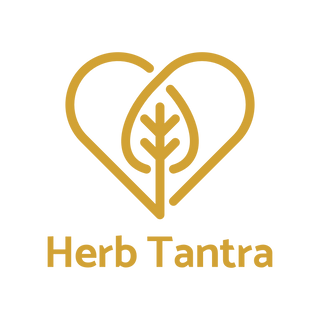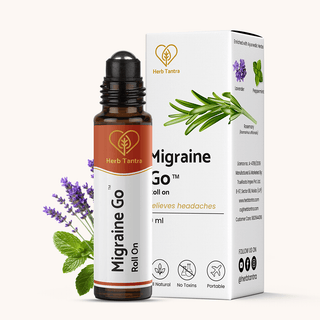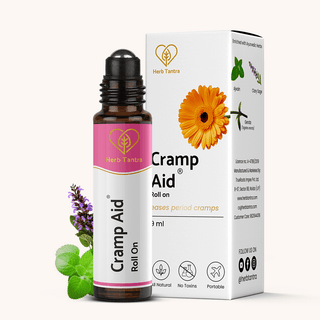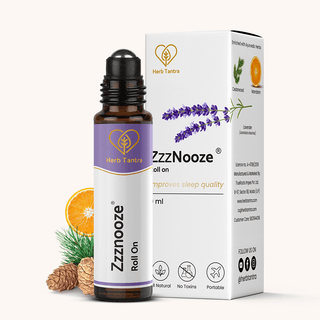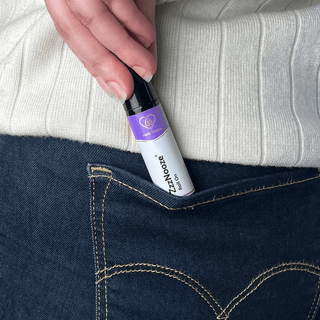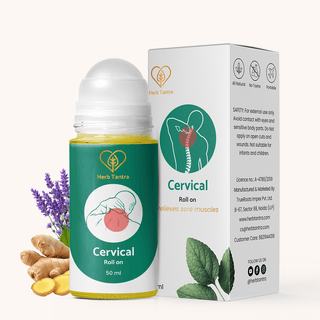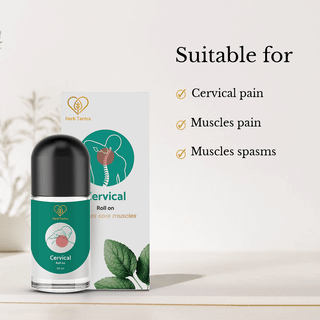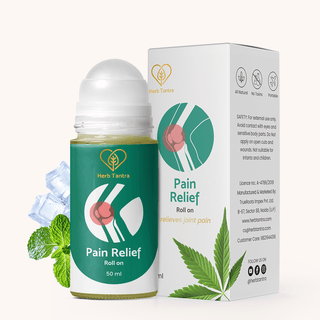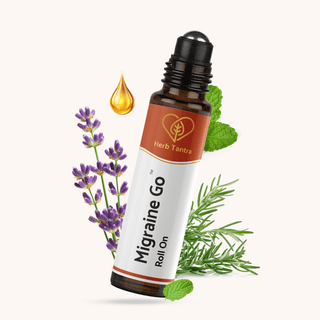Polycystic Ovary Syndrome (PCOS) is one of the most common hormonal conditions affecting women of reproductive age. Yet, many women don’t realize they have it until symptoms become severe. Understanding the early signs of PCOS can help you take timely action, manage symptoms naturally, and reduce long-term complications like irregular periods, bloating, and fatigue.
This guide combines expert-backed insights, PCOS-related keywords, and natural remedies to help you identify and manage early symptoms—while weaving in supportive self-care options from Herb Tantra’s Women’s Health Range.
1. Irregular or Missed Periods – The First Warning Sign
One of the earliest and most common indicators of PCOS is an irregular menstrual cycle. If your periods are consistently delayed, too light, or skipped entirely, it may point to underlying hormonal imbalance.
- Why it happens - Excess androgens (male hormones) and disrupted ovulation interfere with normal cycle length.
- What to watch for - Menstrual cycles longer than 35 days, very light bleeding, or periods fewer than 8 times a year.
- Natural support - Track your cycle carefully, practice stress reduction, and include nutrient-dense foods like leafy greens, zinc-rich seeds, and omega-3 fats to support hormonal health. Using Herb Tantra’s Cramp Aid Herbal Tea (with chamomile, spearmint, and ginger) can soothe mild cramps and help ease bloating while supporting your overall menstrual wellness routine.
2. Excess Facial Hair, Acne & Oily Skin
Elevated androgen levels in PCOS often show up as acne, oily skin, or unwanted hair growth on the face, chest, or abdomen.
- Why it happens - Hormonal imbalance leads to increased sebum production and hair growth patterns.
- Natural support - Anti-inflammatory foods (berries, nuts, turmeric) help lower oxidative stress. Regular gentle exercise improves insulin sensitivity, which can reduce these symptoms over time. Herb Tantra’s Cramp Aid Roll On with genda, ajwain, and clary sage can be rolled onto the lower abdomen and thighs for comfort during cycle-related cramps or discomfort—making self-care seamless.
3. Sudden or Unexplained Weight Gain
Weight gain around the abdomen is a hallmark of PCOS and often linked to insulin resistance.
- What to watch for - Increased belly fat, sluggish metabolism, and difficulty losing weight despite diet or exercise.
- Natural support - Focus on a balanced diet high in fiber, moderate protein, and healthy fats. Reduce refined carbs and sugar to improve insulin sensitivity. Incorporate gentle activities like yoga or walking to regulate weight naturally. Combined with herbal teas like Cramp Aid Herbal Tea, this lifestyle shift can improve energy and reduce bloating and fatigue.
4. Hair Thinning or Scalp Hair Loss
While excess hair growth occurs in some areas, PCOS can also cause thinning hair on the scalp. This is due to androgen sensitivity of hair follicles.
- Natural support - Include iron-rich foods (like lentils, spinach, and seeds) and B vitamins to strengthen hair health. Managing stress, sleeping well, and practicing gentle scalp massage with natural oils can also support hair growth.
5. Persistent Fatigue & Mood Changes
Hormonal fluctuations in PCOS can lead to low energy, brain fog, and mood swings.
- Why it happens - Insulin resistance and low-grade inflammation affect neurotransmitters and cortisol levels.
- Natural support - Stabilize blood sugar by eating balanced meals every 3–4 hours, staying hydrated, and limiting caffeine spikes. Gentle yoga poses, mindfulness, and stress management can restore energy levels. Pairing this with Herb Tantra’s Apple Cider Vinegar (with the mother) from the PCOS Bundle can support digestion, improve metabolism, and help reduce sugar cravings naturally.
6. Dark Patches of Skin (Acanthosis Nigricans)
Some women develop darkened skin patches around the neck, underarms, or inner thighs. This can indicate insulin resistance—a key factor in PCOS.
- Natural support - Work with a healthcare professional to monitor blood sugar. Include cinnamon, fenugreek, and chromium-rich foods to help improve insulin sensitivity naturally.
Building a Holistic PCOS Routine
Early detection and consistent care can make PCOS symptoms more manageable. A well-rounded self-care plan includes -
- Balanced diet - Rich in fiber, healthy fats, lean protein, and low-GI carbohydrates.
- Exercise - At least 30 minutes of moderate movement most days.
- Stress management - Meditation, yoga, or deep breathing to lower cortisol levels.
- Herbal support - Herb Tantra’s Women’s Health Range—including the Cramp Aid Roll On, Cramp Aid Herbal Tea, and Apple Cider Vinegar—can complement a holistic PCOS lifestyle, making natural symptom management simpler and more consistent.
Conclusion
Recognizing the early signs of PCOS—from irregular periods and acne to fatigue and weight gain—empowers you to take control of your hormonal health. By combining balanced nutrition, regular exercise, and stress management with natural Ayurvedic support, you can address PCOS symptoms early and prevent long-term complications.
FAQs
1. What are the first signs of PCOS in young women?
Irregular periods, acne, weight gain, and unwanted hair growth are the earliest indicators of PCOS.
2. Can PCOS be reversed naturally?
While it may not be “cured,” PCOS can be managed with lifestyle changes, balanced diet, and herbal support to improve hormonal balance.
3. How does stress affect PCOS symptoms?
Chronic stress elevates cortisol and worsens insulin resistance, making PCOS symptoms more severe. Stress management is key.
4. What foods are good for early PCOS management?
High-fiber vegetables, lean proteins, healthy fats, cinnamon, and zinc-rich seeds help stabilize blood sugar and hormones.
5. When should I see a doctor for PCOS?
If your cycles are consistently irregular or you experience severe symptoms like rapid weight gain, excessive hair growth, or persistent acne, consult a gynaecologist for evaluation.
